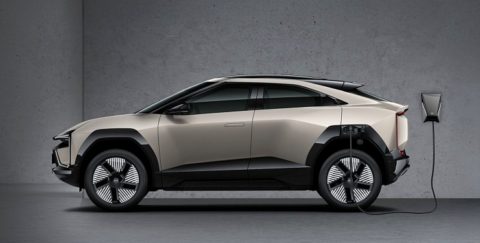The past week brought some noteworthy announcements, including Tesla’s India footprint, Mahindra’s policy update on EV chargers and broader trends in the industry. Here’s a closer look at the highlights.
Tesla’s First India Showroom:
Tesla is making its much-anticipated debut in India with its first showroom set to open in Mumbai’s Bandra Kurla Complex or BKC, news agency Reuters reported. The 4003-square-foot space, located in the Maker Maxity building, marks Tesla’s first physical presence in the country.
The showroom, secured under a five-year lease starting February 2025, is strategically positioned near India’s first Apple Store, symbolizing a hub for premium brands.
This move comes soon after Indian Prime Minister Narendra Modi met Elon Musk in Washington in February during his US visit and aligns with Tesla’s broader plans to expand its footprint in India, potentially paving the way for local manufacturing or assembly in the future.
With recruitment underway for roles in sales, service, and operations, Tesla’s entry is expected to boost India’s EV market and intensify competition among domestic and international players.
Mahindra’s Policy Update: Chargers No Longer Mandatory:
Mahindra, which last month dethroned Hyundai as India’s second-largest automaker, announced that it was revising its charging policy for its electric SUVs, the BE 6 and XEV 9e based on feedback.
Previously, customers were required to purchase a home charger along with the vehicle, costing ₹50,000 for a 7.2 kW charger or ₹75,000 for an 11.2 kW charger. However, based on customer feedback, Mahindra has now made the purchase of chargers optional under specific conditions.
Important Charging Policy Update!
— Mahindra Electric Origin SUVs (@mahindraesuvs) March 7, 2025
Based on valuable customer feedback, we have reviewed our policy on mandatory charging solutions for Mahindra electric SUVs. While we strongly recommend Mahindra-certified chargers for optimal safety and performance, customers now have the… pic.twitter.com/K9FgfumcbR
Buyers can opt out of purchasing a charger if:
- Their residence or office lacks the infrastructure for a private charger.
- They already own a charger that meets Mahindra’s safety standards.
- They are purchasing multiple Mahindra EVs and can share a single charging point.
This move aims to provide greater flexibility to customers while still encouraging the use of certified chargers for safety and performance.
Additionally, Mahindra introduced a “Charge as a Service” (CaaS) model, offering a comprehensive package that includes charger supply, installation, and maintenance. Our take: We hope this does not lead to stress later with battery health issues and overall warranty claims.
Surge in EV Sales:
India’s EV market witnessed a remarkable surge in sales, growing over 80% year-on-year in FY2024. And, EV retail sales jumped by 19% in February 2025. Tata Motors led the sales figures with 3825 units, followed by MG with 3270 units.
In 2-wheelers, sales were hit with a dip of 8% over last year with total units sold at 76086 units. Bajaj Auto led the charts with sales of 21389 units.
This growth reflects a shift in consumer behaviour, driven by rising awareness of sustainability, improved charging infrastructure, and advancements in EV technology. EVs are increasingly seen as a lifestyle choice, combining eco-friendliness with AI-led features.
Ola’s PLI Gain:
Ola achieved a significant milestone by becoming the first two-wheeler EV manufacturer in India to receive incentives under the Production Linked Incentive or PLI Scheme for Automotive and Auto Components.
The company was granted ₹73.74 crore for its determined sales value for FY 2023-24, as per a government order dated March 5, 2025. The PLI-Auto Scheme, launched by the Indian government, aims to boost domestic manufacturing, reduce import dependency, and promote advanced, clean, sustainable mobility solutions.
Government Initiatives and Investments:
The government continues to push for EV adoption, inviting European Union companies to invest in the sector. This initiative focuses on sustainable manufacturing and technological advancements, aiming to position India as a global leader in electric mobility.
Looking Ahead:
The developments from last week highlight the dynamic nature of India’s EV landscape. With global EV giant Tesla’s imminent India launch, automakers like Mahindra addressing customer concerns and the government fostering innovation and investment, the future of electric mobility in India looks promising.
As the industry grows, it will be crucial to address challenges such as charging infrastructure and affordability to ensure widespread adoption.
About the Author
GoElec aims to inform, educate, and raise awareness about the growing electric vehicle ecosystem in India and the transformative impact of modern technology and artificial intelligence on the way we travel.





Leave a Reply